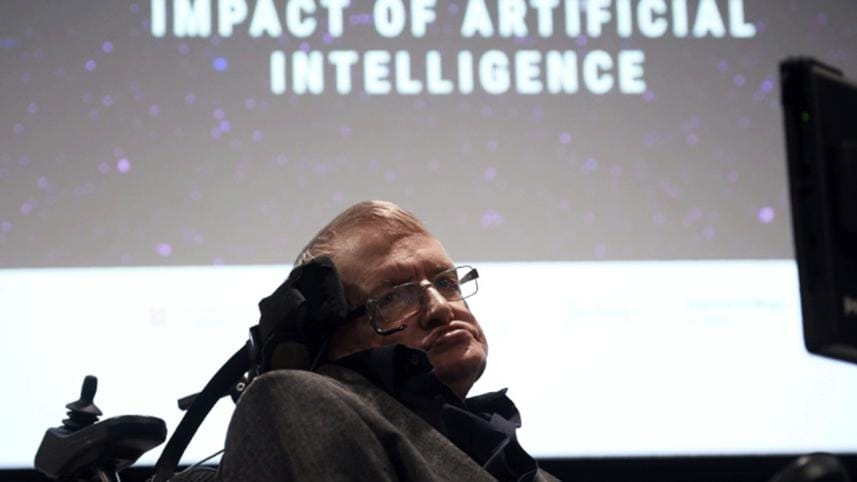Hawking opens British artificial intelligence hub

Professor Stephen Hawking on Wednesday opened a new artificial intelligence research centre at Britain's Cambridge University.
The Leverhulme Centre for the Future of Intelligence (CFI) will delve into AI applications ranging from increasingly "smart" smartphones to robot surgeons and "Terminator" style military droids.
Funded by a £10 million (11.2 million-euro, $12.3-million) grant from the Leverhulme Trust, the centre's express aim is to ensure AI is used to benefit humanity.
Opening the new centre, Hawking said it was not possible to predict what might be achieved with AI.
"Perhaps with the tools of this new technological revolution, we will be able to undo some of the damage done to the natural world by the last one -- industrialisation.
"And surely we will aim to finally eradicate disease and poverty. Every aspect of our lives will be transformed.
"In short, success in creating AI could the biggest event in the history of our civilisation," Hawking said.
The centre is a collaboration between the universities of Oxford, Cambridge, Imperial College London, and Berkeley, California.
It will bring together researchers from multiple disciplines to work with industry representatives and policymakers on projects ranging from regulation of autonomous weapons to the implications of AI for democracy.
"AI is hugely exciting. Its practical applications can help us to tackle important social problems, as well as easing many tasks in everyday life," said Margaret Boden, a professor of cognitive sciences and consultant to the CFI.
The technology has led to major advances in "the sciences of mind and life", she said, but, misused, also "presents grave dangers".
"CFI aims to pre-empt these dangers, by guiding AI-development in human-friendly ways," she added.
Fears of robots freeing themselves from their creators have inspired a host of films and literature -- "2001: a Space Odyssey" to name but one.
Hawking warned technological developments also posed a risk to our civilisation.
"Alongside the benefits, AI will also bring dangers, like powerful autonomous weapons, or new ways for the few to oppress the many.
"It will bring disruption to our economy. And in the future, AI could develop a will of its own -- a will that is in conflict with ours," he said.
But catastrophic scenarios aside, the development of AI, which allows robots to execute almost all human tasks, directly threatens millions of jobs.
Freedom or destruction?
So will AI, which has already conquered man in the game of chess, ultimately leave humans on the sidelines?
"We don't need to see AI as replacing us, but can see it as enhancing us: we will be able to make better decisions, on the basis of better evidence and better insights," said Stephen Cave, director of the centre.
"AI will help us to learn about ourselves and our environment -- and could, if managed well, be liberating."
With this in mind, ethics will be one of the key fields of research of the CFI.
"It's about how to ensure intelligent artificial systems have goals aligned with human values" and ensure computers don't evolve spontaneously in "new, unwelcome directions", Cave said.
"Before we delegate decisions in important areas, we need to be very sure that the intelligence systems to which we are delegating are sufficiently trustworthy."
The opening of the research centre comes at a time when major international groups have competing ambitions in AI.
Google has integrated the technology in its new phone, Apple and Microsoft are proposing personal assistants, while Sony and Volkswagen have also invested in AI development.
 For all latest news, follow The Daily Star's Google News channel.
For all latest news, follow The Daily Star's Google News channel.
Comments